Administrative Agencies: 21st Century, Powers, Rules, and Delegation
VerifiedAdded on 2022/09/15
|13
|790
|20
Homework Assignment
AI Summary
This assignment delves into the realm of administrative agencies, focusing on their law-making capabilities and the delegation of power granted by Congress. It highlights the agencies' legislative, executive, and judicial powers, as well as the role of the Administrative Procedure Act (APA) of 1946 in setting standards for their law-making. The document explores the non-delegation doctrine, which restricts Congress from delegating legislative powers, and examines instances of unconstitutional delegation through key cases like Panama Refining Company vs. Ryan, Schechter Poultry Corporation vs. United States, and Touby v. United States. The assignment also differentiates between the three types of rules promulgated by administrative agencies: procedural, legislative, and interpretative rules, providing a comprehensive overview of the agencies' functions and legal constraints.
1 out of 13

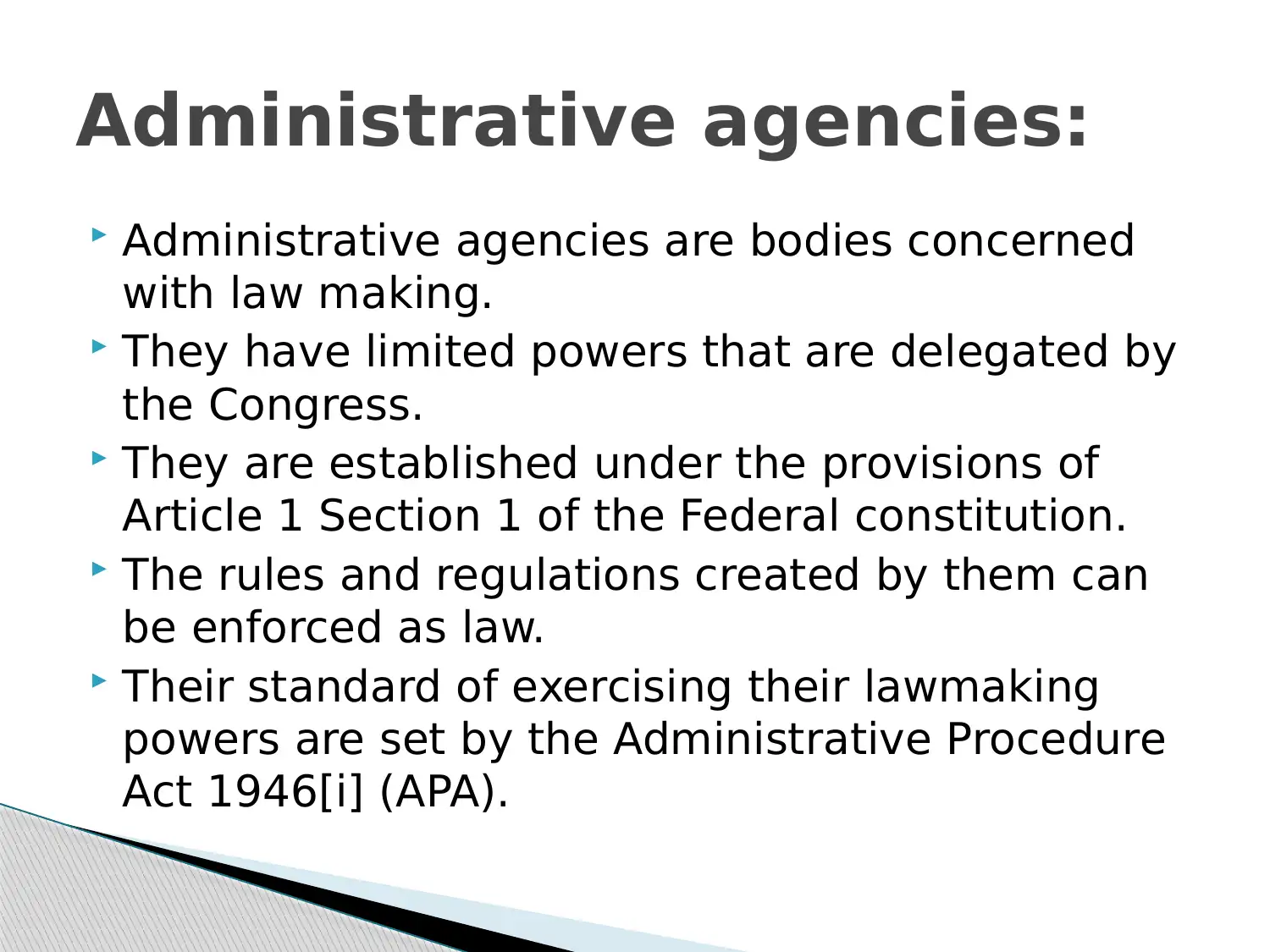
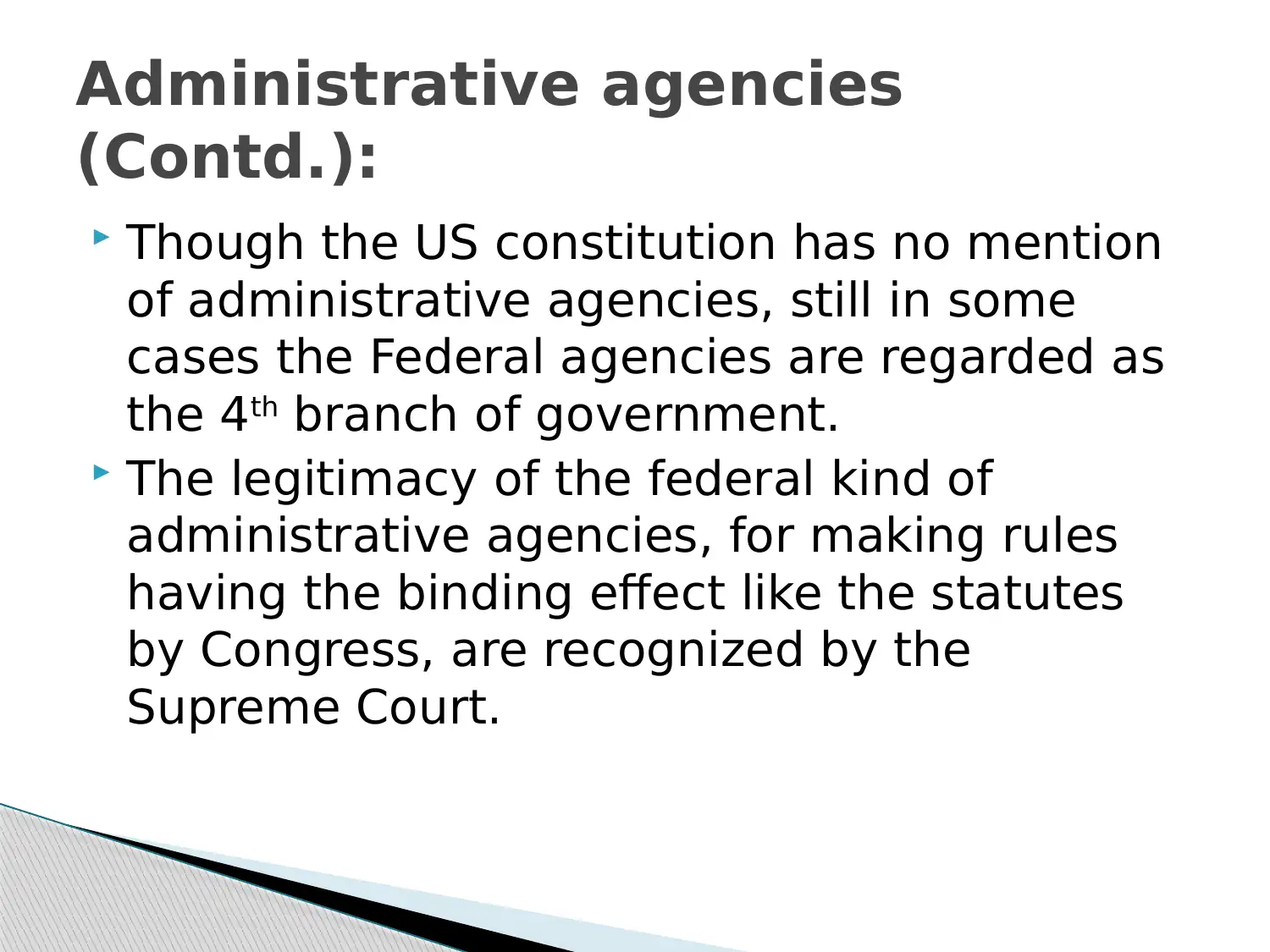

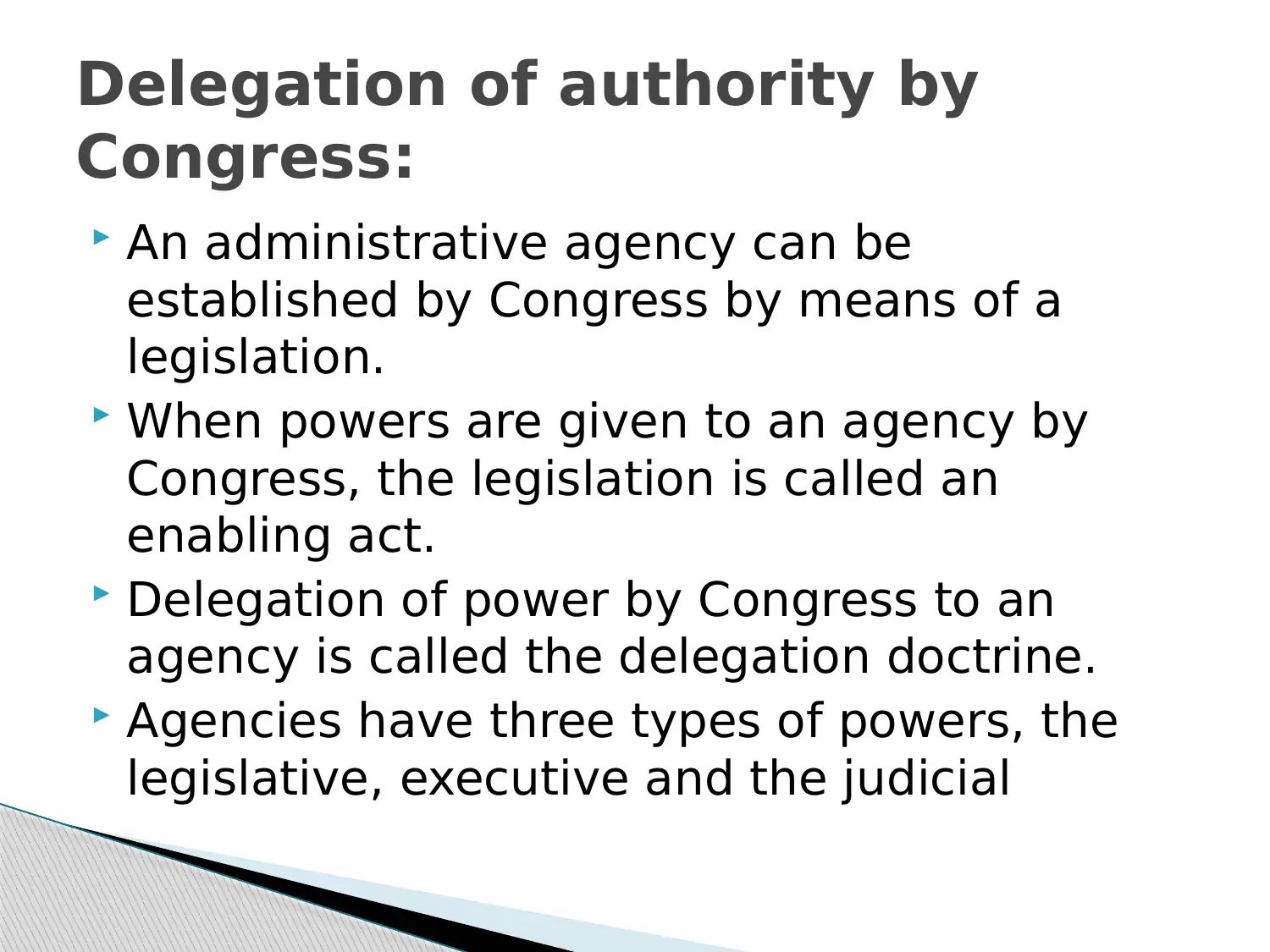
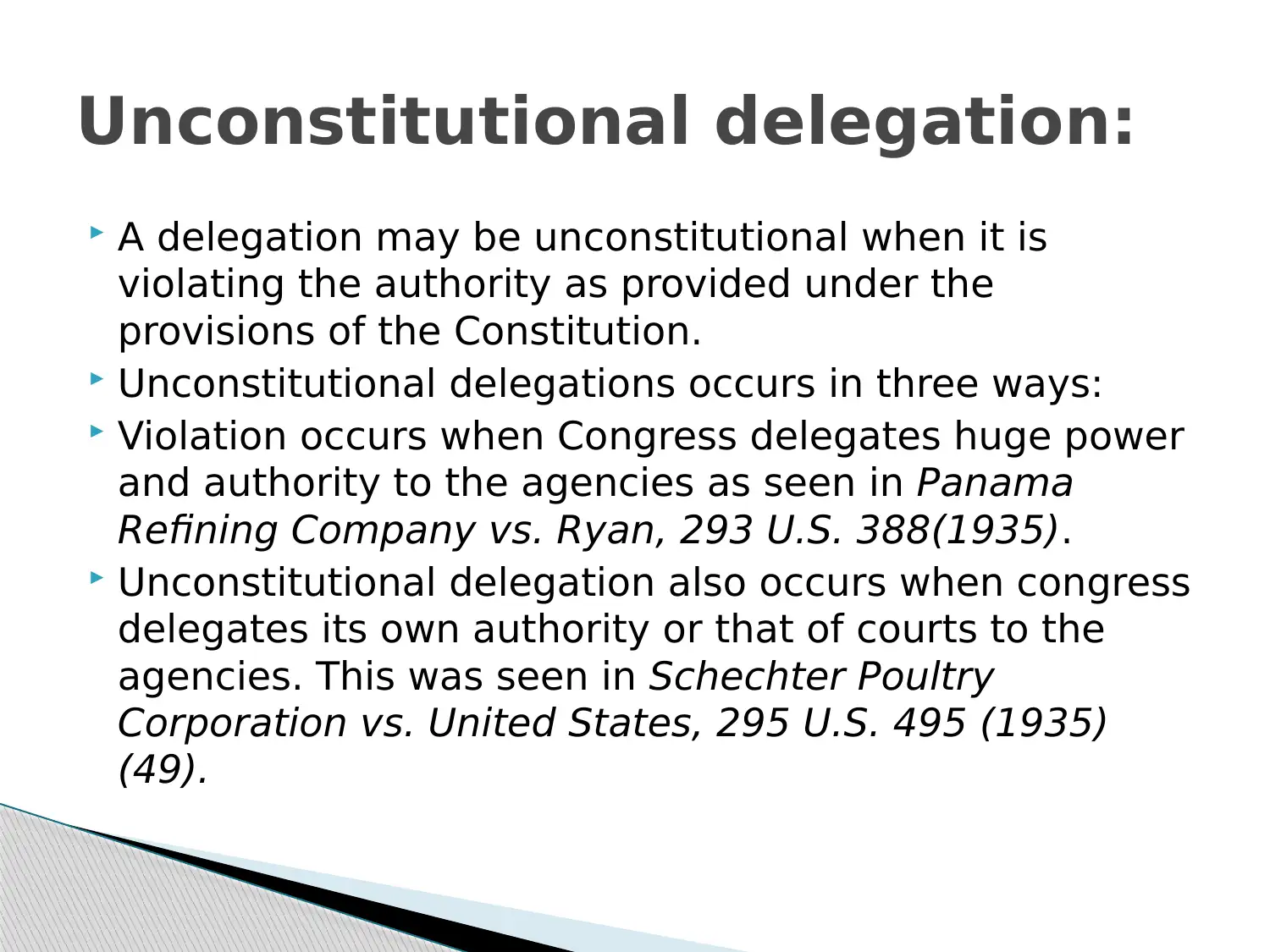
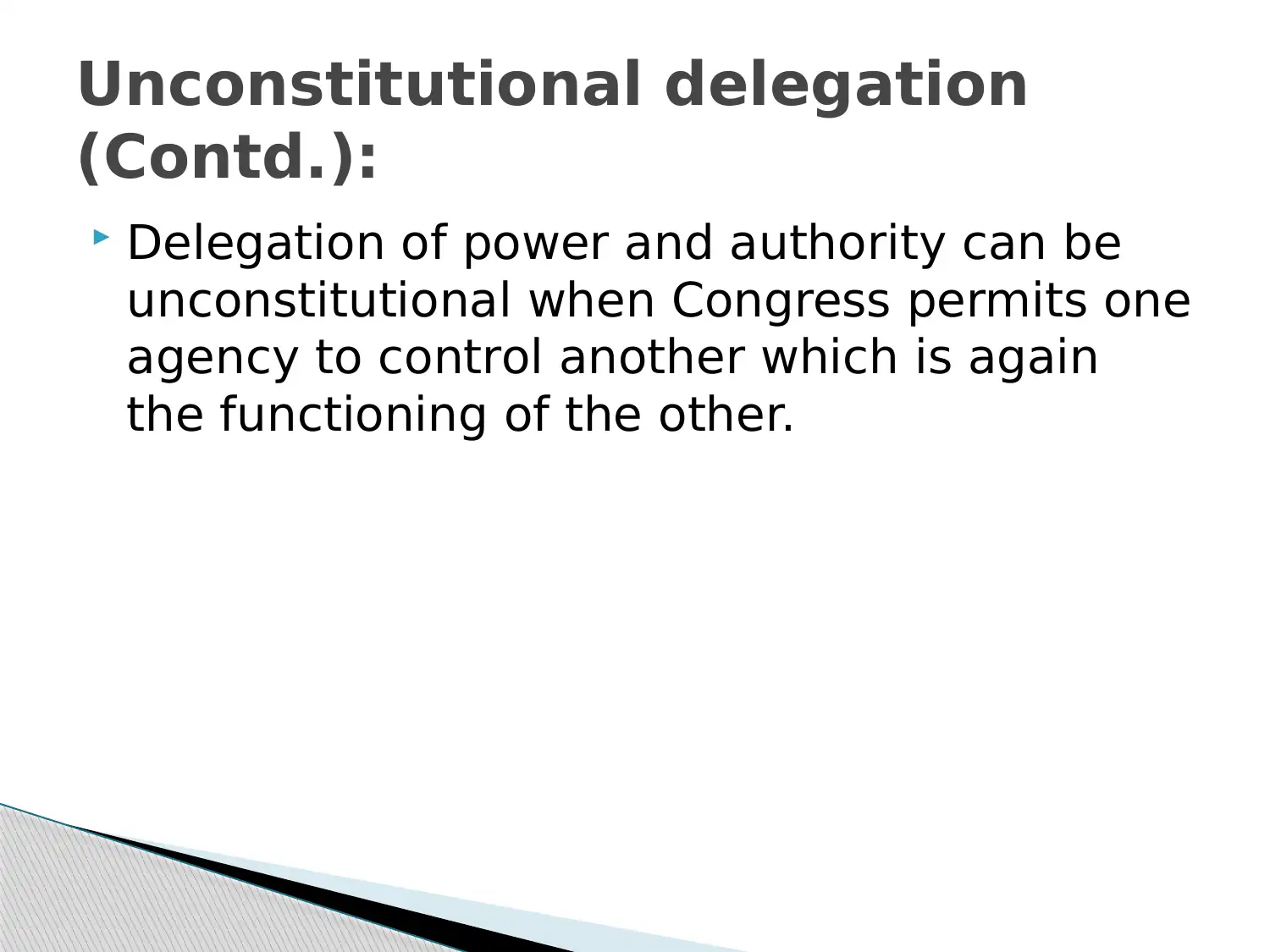
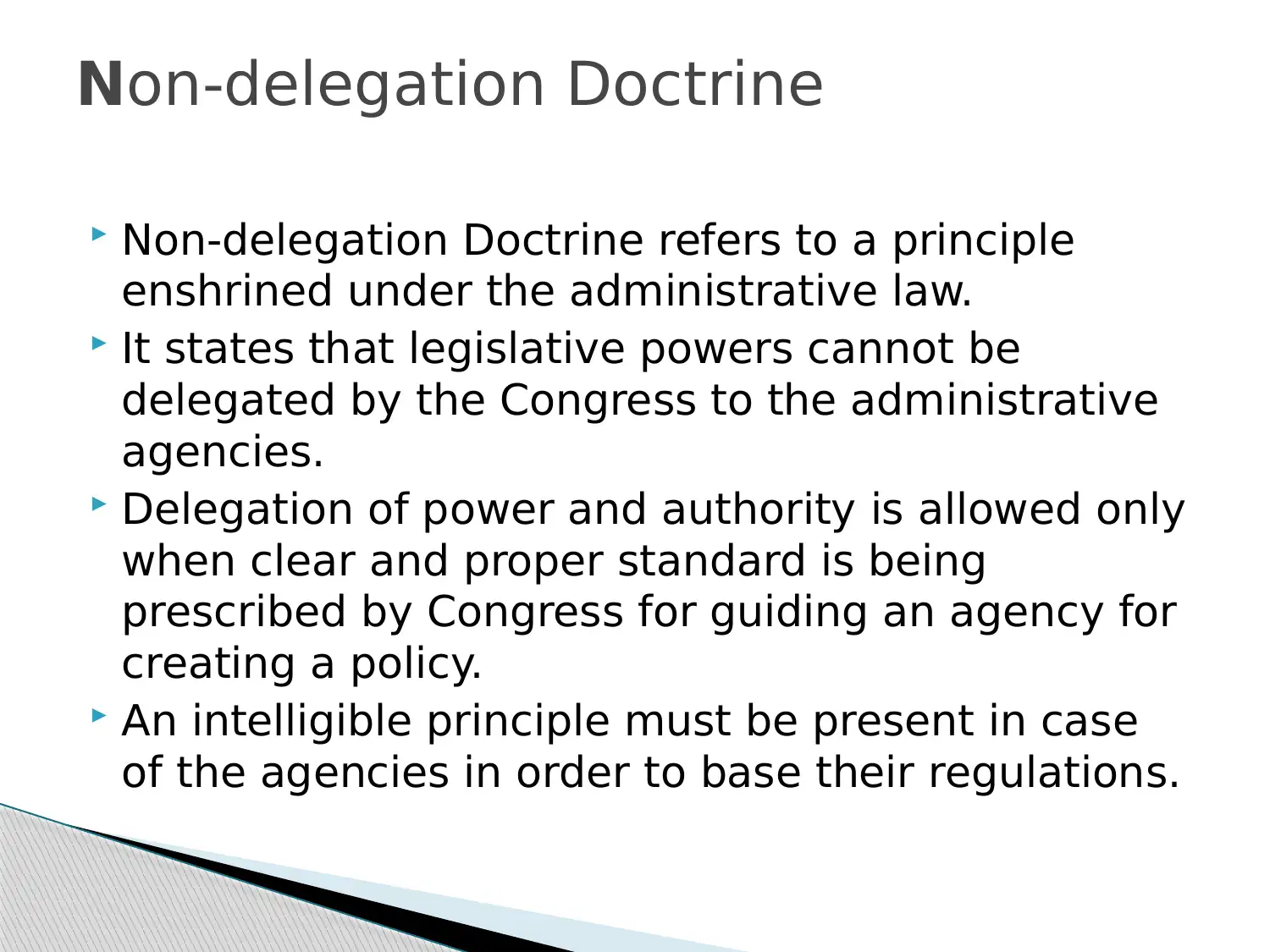
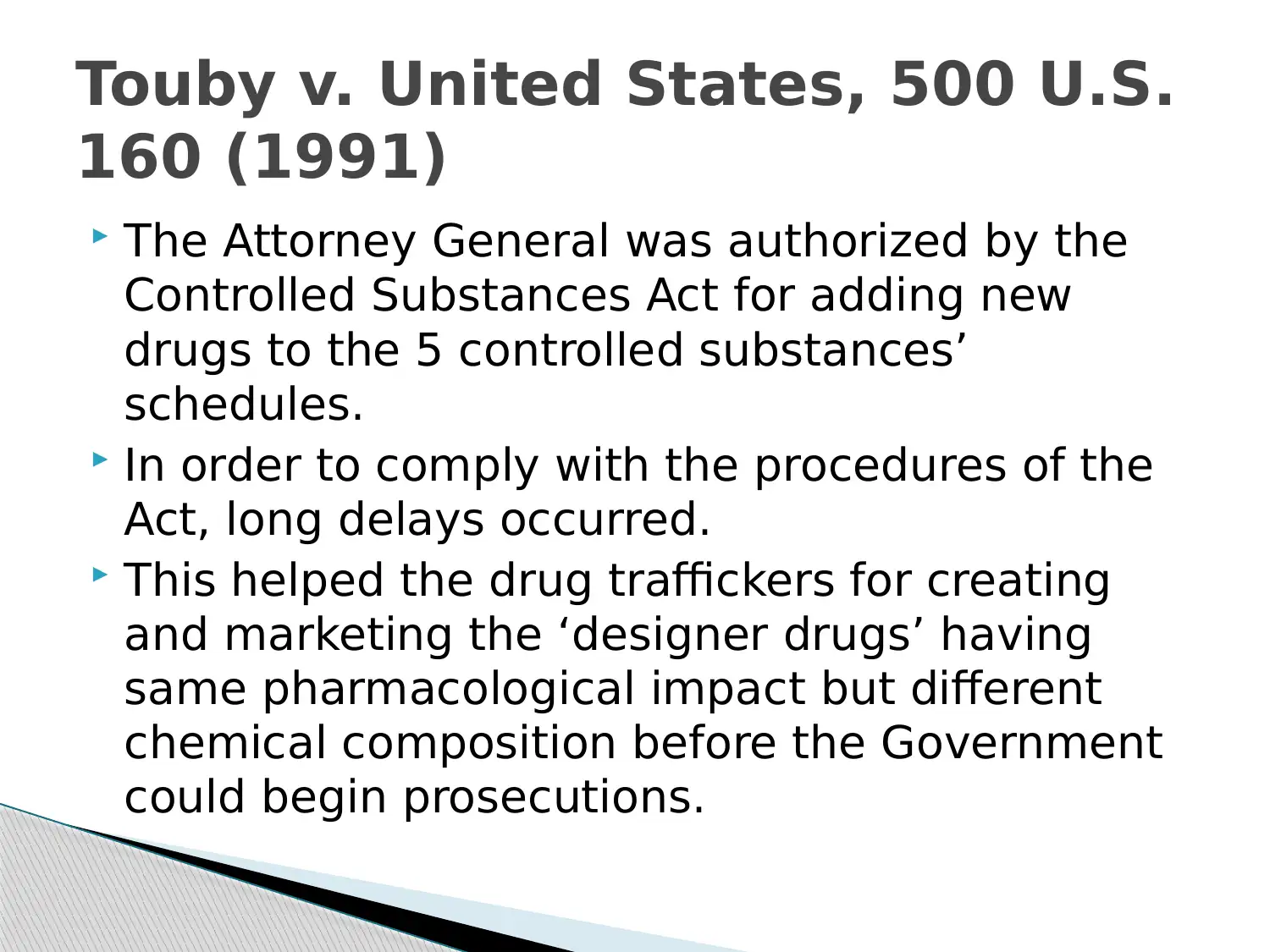
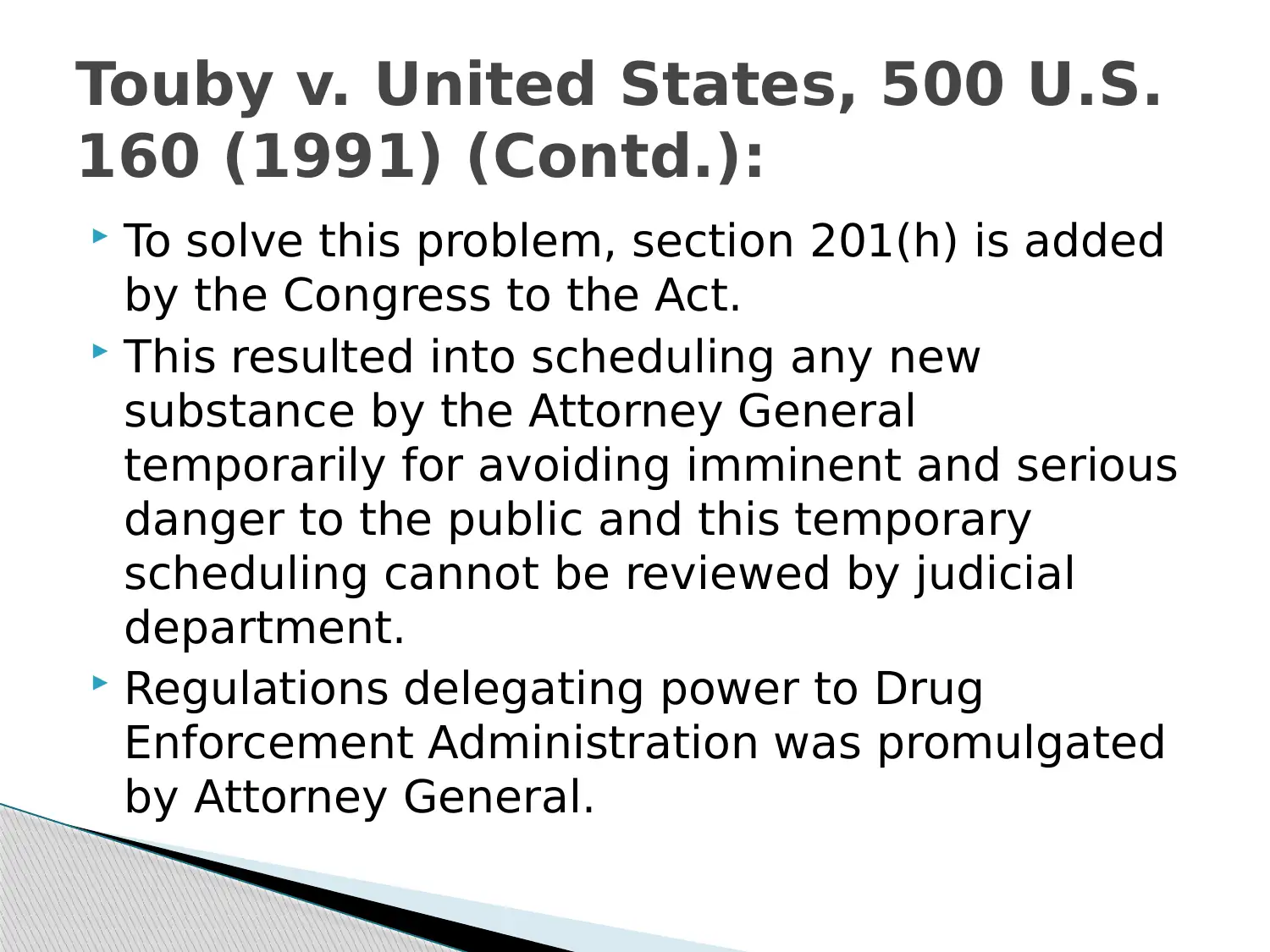
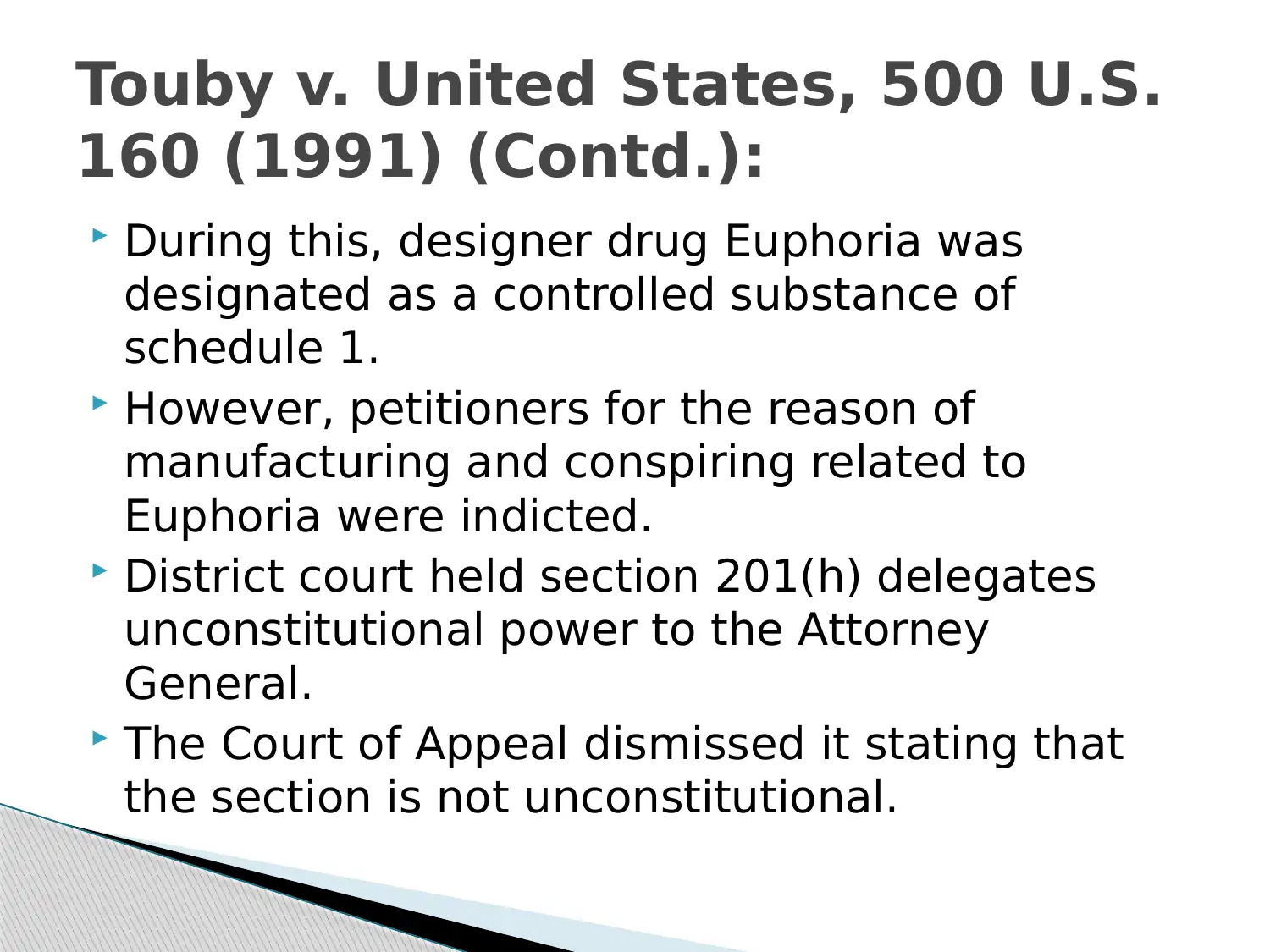
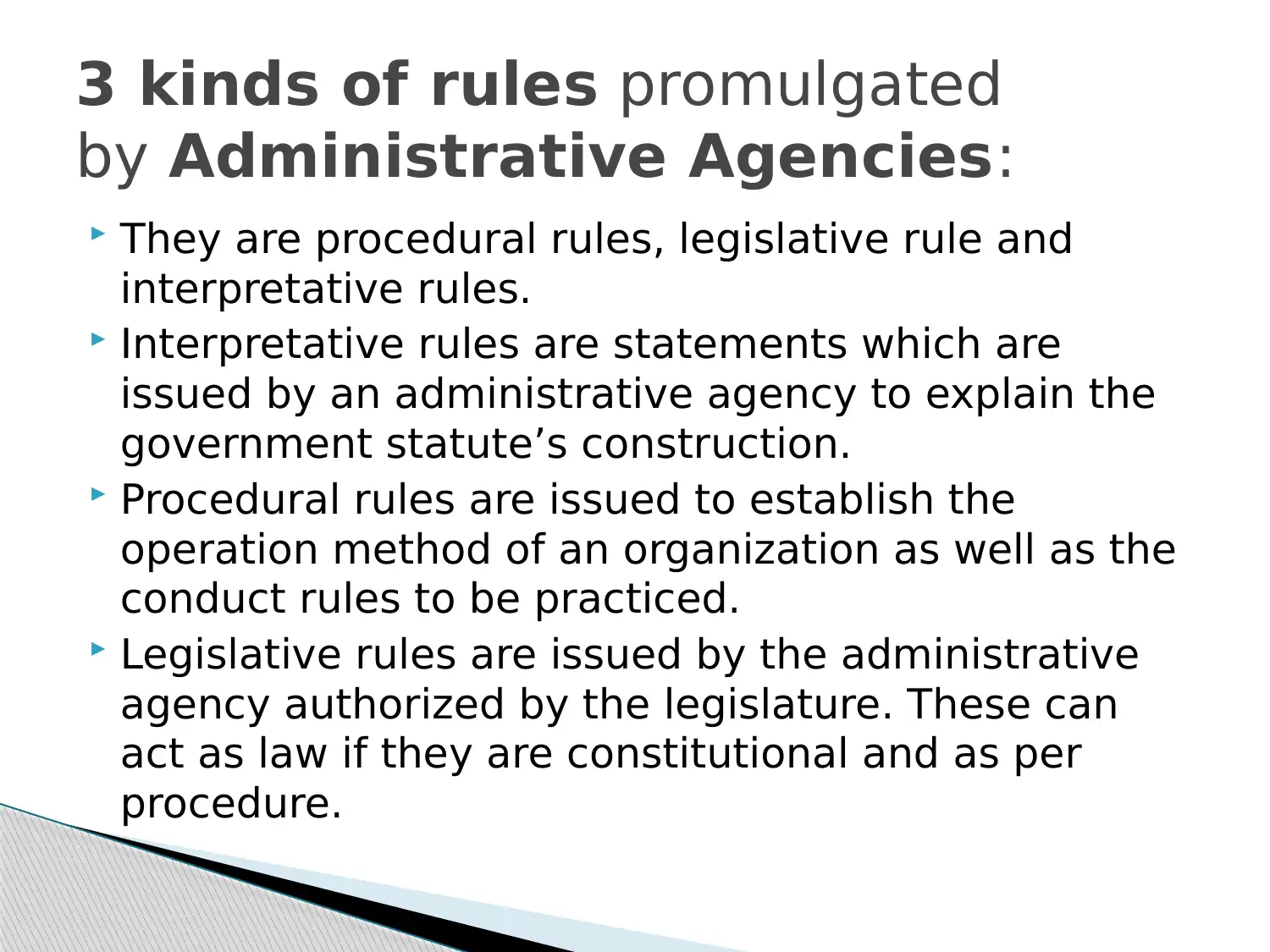
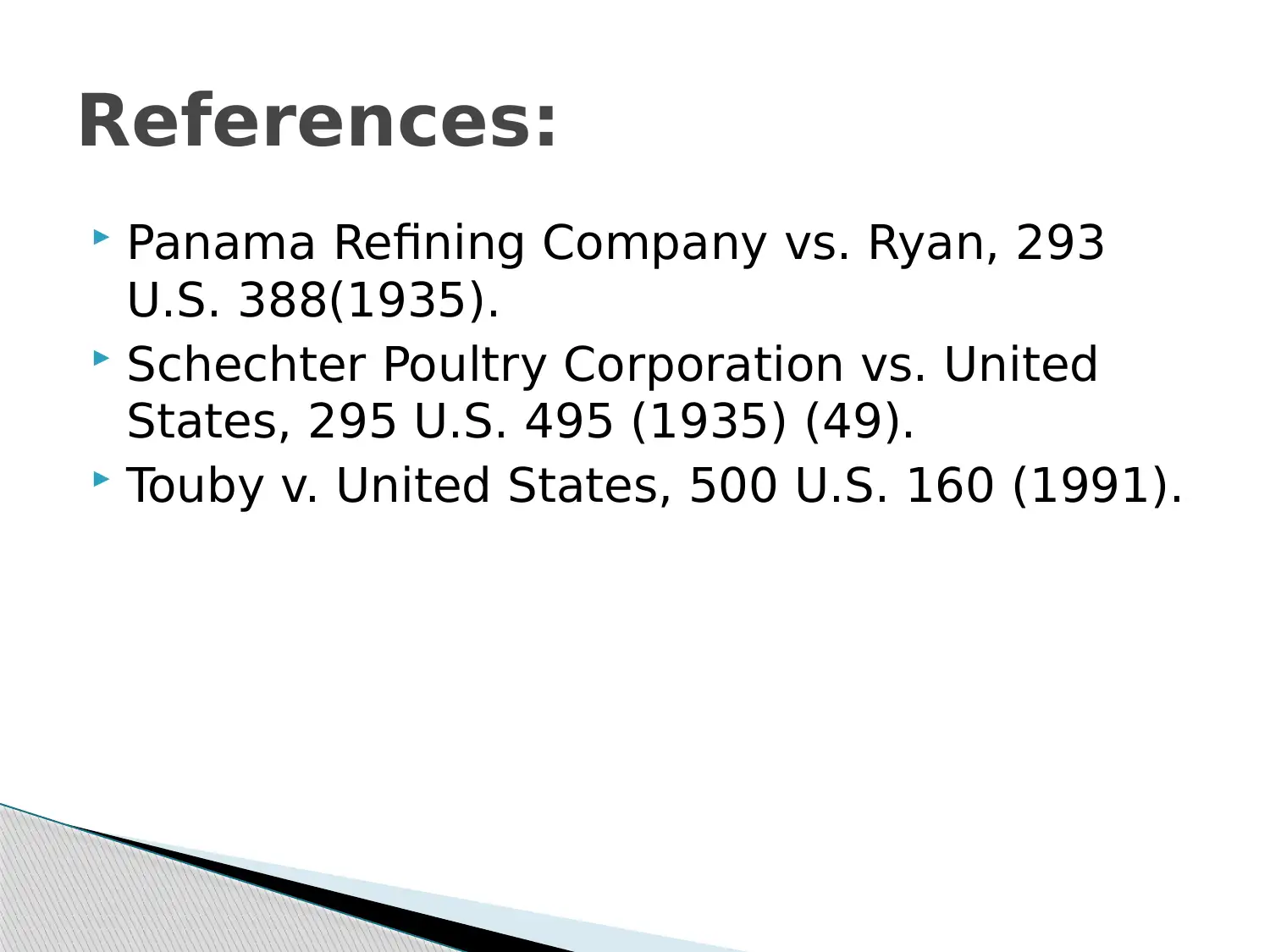



![[object Object]](/_next/static/media/star-bottom.7253800d.svg)